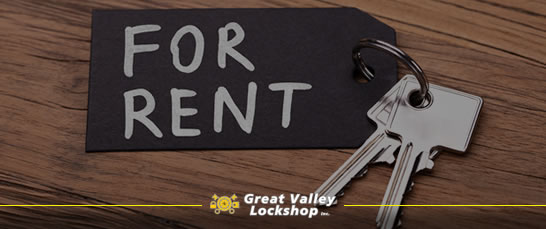
Teaching Your Children About Home Security
Home security should be important to every member of the family. Everyone needs to be involved and play a role in keeping the home safe and sound. Protection and peace of mind comes from family members who work together and are responsible for taking the necessary precautions.
It’s important to teach children early so that home security and safety will be second nature. Parents and caregivers need to provide them with the tools and knowledge they need to approach each situation safely and confidently. Each child should be taught according to their ability to understand the concept of security without instilling fear or causing them to become overly frightened.
We have put together some tips on how to talk to your children about home security and what to consider before trusting your child with a house key.
Talk to Your Kids About Staying Secure
Leaving your child home for the first time is a major milestone for you and them. It’s a rite of passage that allows them more independence in return for more responsibility. Each child will reach this milestone at different ages. You know your child better than anyone else so granting this level of trust and responsibility should not be taken lightly.
Even if you are home with your children, discussing residential security is key to raising them with a strong sense of safety and practical skills for protecting themselves.
Let Your Child Guide You
When teaching kids the crucial elements of home security, it’s important to let them guide you. You should consider your child’s age, their capacity to understand the steps involved, and their judgment concerning safety. Placing too much responsibility on your kids at an early age can be frightening. Even older children may get overwhelmed if you try to teach too much too soon.
Giving kids age-appropriate responsibility is an important part of growing up. Then, as they mature, they can continue to earn your trust and take on greater responsibility.
Knowing Your Security System
Learn as much as you can about your security system when it’s installed. Talk to the technicians and review the owner’s manual to get a good idea of how it works. Once your system has been installed and is fully operational, start to include your children when you enable or disable the alarm or other functions.
It’s important to start teaching children about home security as soon as a new system is installed. Show them how things work and where the control panel is located. Teach them simple things they can do to help, such as call 9-1-1 on the telephone or hit the emergency button on the control panel.
Establish a routine for when you leave your home, go to bed, and enter the house. After the child has a firm grasp of what needs to be done, allow them to perform a few of the tasks on their own. Hands-on practice is a great way to learn.
Practice Different Scenarios with Your Children
Safety recommendations highlight the importance of having an evacuation route planned in case of a fire and a plan to take shelter in case of extreme weather. The same should be true when it comes to home security. Walking through security scenarios will allow your child to see first-hand what should be done in specific situations. Having a child actually perform a task will help them to remember each step.
Writing down specific instructions that they can look back on will also help. You can create a poster with emergency instructions for each scenario. This also facilitates practicing them on a regular basis.
Watch this video to learn what home security measures you should discuss with your children.
Create A Security Checklist
When leaving your child at home alone, you should make sure they understand the safety rules and measures. They include:
- Understanding how to work all the locks in the home, including the doors, windows and garage doors.
- No visitors whatsoever.
- The stove, oven, and grill are off-limits.
- Remain in constant communication, via text or phone.
- In case of an emergency, dial 9-1-1 and go to a pre-determined place of safety.
- Memorize all personal information, as well as how to reach a parent in case of an emergency.
Before you leave the home, make sure a trustworthy neighbor knows that your son or daughter are home alone. Exchange phone numbers to enable contact by either party. Always keep a list of emergency contacts and phone numbers somewhere that is easy for the child to see.
What to Consider Before Giving Your Kid a House Key
One of parents’ common concerns is how to keep their kids safe after school. Even if someone is usually home when the child gets dropped off by the bus or carpool, it’s important that they have a house key just in case.
It may be difficult to decide when it’s the right time to provide your child with a copy of the house key. Here are some key considerations. This is also a good time to consider more high-tech solutions like keyless entry and smart home systems.
Is it the Right Time to Give Your Child a Key?
Make sure that you talk with your kids about home security and the responsibility of having a house key. There are a few questions that you should consider when deciding to trust your child with a key.
- Is your child old enough to handle the responsibility of being home alone?
- Does he/she feel comfortable at home alone?
- Will your child need to unlock the door nearly every day, or just in case you’re out running an errand?
- Is your child forgetful or does he/she tend to lose things?
- Do you have trustworthy neighbors who can help out?
- Does your child know what to do in case of an emergency?
- Can your kid call you or someone else if he/she has a problem or feels unsafe?
- What is the safest place to keep the key during school hours?
Go through this set of questions and consider whether it’s appropriate to give your kid a house key this school year.
Keeping Track of the House Key
One of the biggest challenges with entrusting a house key is making sure that the child doesn’t lose it. An easy solution is to attach the key to something larger and more difficult to misplace. With a lanyard or retractable key leash can be attached to your kid’s backpack, for example. An effective DIY workaround is to simply tie a string to the key and to the zipper of a school bag.
This way it’s easy for your child to find the key, open the door when he/she gets home from school and put it back in its pocket. Attaching the key to a bag alleviates the problem of misplacing it or remembering where it’s stored.
For security reasons, we strongly discourage homeowners from having hideaway keys or keeping a key under the doormat. Burglars tend to watch homes before attempting a break-in. They look for homes that are empty all day and may even see your child grabbing the key from its hiding spot.
More Secure Options for Kids
The good news is that today’s technology enables better options for helping kids enter the home safely. Rather than providing them with a copy of the key which can be easily lost, keyless entry and smart lock systems enable access without compromising security. Especially if your children will be home alone for any period of time, this would actually be the right moment to consider boosting security around your home.
Keyless Entry
Consider upgrading to a keyless entry system at your home. Unlike a traditional key, keyless entry systems can be easily programmed to block entry for a proximity card or access code, in case it goes missing. This prevents the expense of rekeying the locks and the inconvenience of having new keys made for the rest of the family. Your children will be able to open the door and the system records entry activity so that you know what time they come home. Keyless entry is also a great solution for granting limited access to babysitters and other caregivers.
Smart Lock
You may have heard about smart home technology. This option has been gaining popularity among homeowners in recent years. Smart locks let you enter the house through a smartphone application. How do they work? If your kids have a smartphone, they can download the smart home app which allows them to unlock the door when they arrive. If they don’t have a phone, or you only need to let them in occasionally, the smart home app allows you to unlock the door remotely.
Plus, you can let caretakers, friends or family in from wherever you are. The application allows you to see who is requesting access, when they enter and exit, and then block access when their service is no longer needed.
Related article: The Ultimate Guide to Childproofing All Types of Doors.
Your Trustworthy Local Locksmith
The experienced locksmiths at Great Valley Lockshop can help find the right security solutions to protect your family and house. Call Great Valley Lockshop at (610) 644-5334 or request a free estimate for services using our easy online form.








